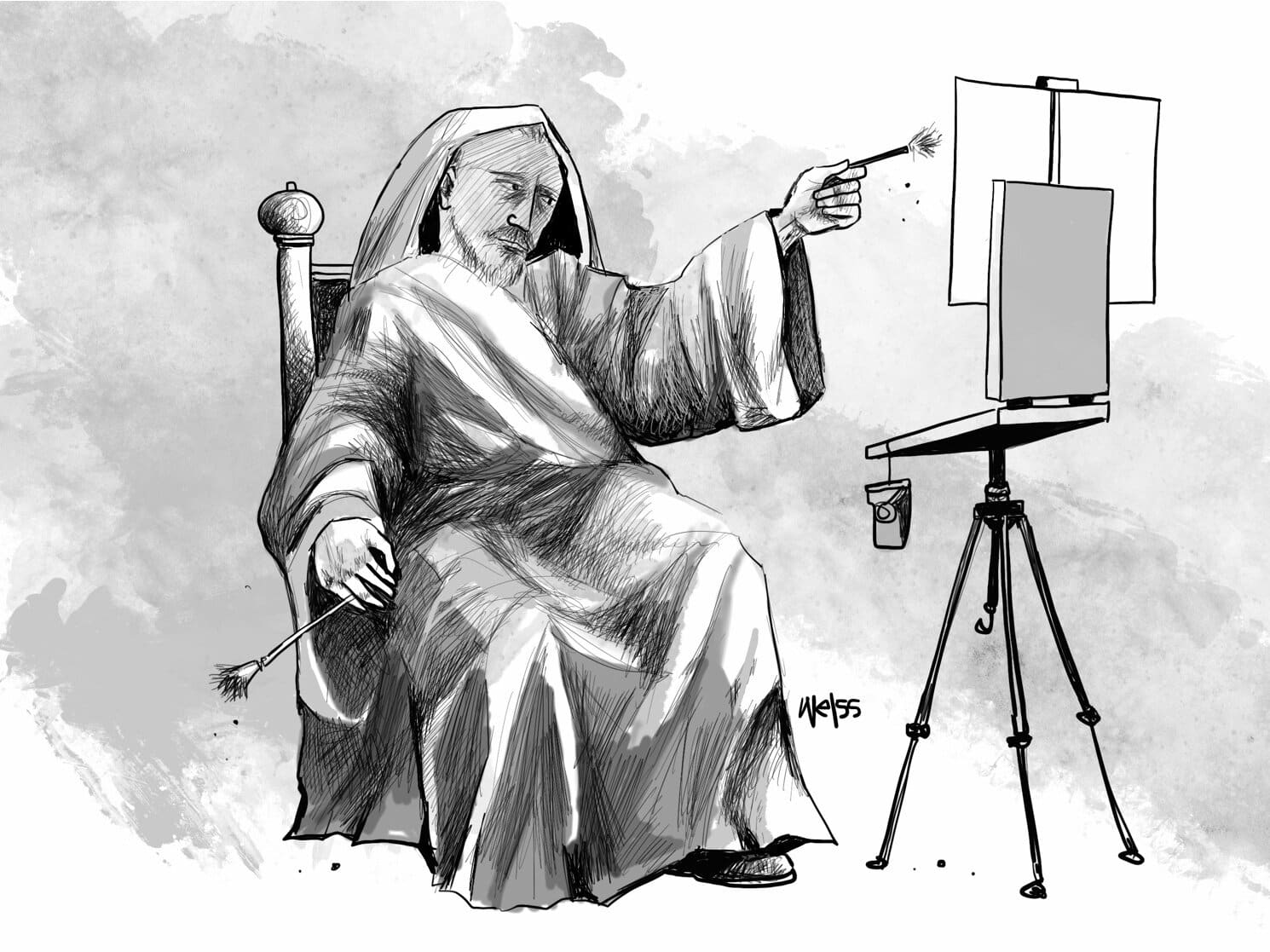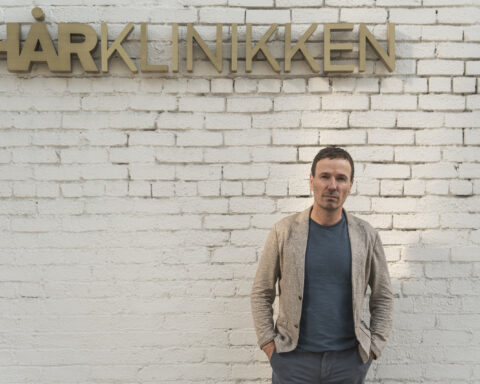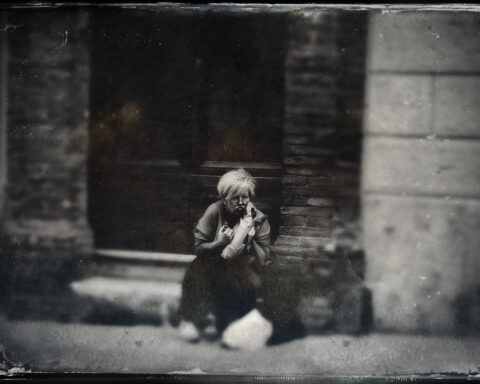In 1960, five young men found themselves outside the imposing gates of St. Hugh’s Charterhouse, Parkminster, located in West Sussex, England. Their backgrounds were different, but they shared the same goal: to live alone with God.
Each of these young men had chosen St. Hugh’s Charterhouse, which was home to one of the Western world’s most austere monastic orders, known as the Carthusians. Some of these young men came from other monastic orders. All were seeking a deeply ascetic life to focus on their relationship with God.
“There’s a difference between solitude and loneliness. I can understand the concept of being a monk for a while.” –Tom Hanks
If Navy SEALS are the toughest members of the United States military, then Carthusian monks are the Navy SEALS of the Catholic church. Unlike other monastic orders, Carthusians live their lives almost entirely alone in “cells.”
Their food is brought to them in lunch pales called “gamelles” and placed in a small wooden box. Carthusian monks wear itchy “hair shirts” beneath their white robes. They sleep in straw beds and are only allowed one hot bath per week.
Carthusians follow a strict routine of prayers in their cells and daily “offices” in church, including midnight masses. As a result, their sleep cycles are broken. When not praying, they are studying, tending their individual gardens, or working in various jobs on the monastery grounds.
Each Carthusian novice endures years of probation before their superiors vote on whether or not to allow them to become “professed solemns,” which binds them to the Carthusian community for life.
AN INFINITY OF LITTLE HOURS

Author Nancy Klein Maguire chronicled the monastic journey of those five young men who joined the Carthusian order in 1960. Her book, ‘An Infinity of Little Hours’ grants us a rare glimpse inside this austere, highly disciplined monastic world.
Only one of the five young men went on to become a “professed solemn.” The other four lasted five years before leaving the order. Nancy Maguire married one of the four men who left, which is why she was able to gain special insight and access to the Carthusians.
There are Carthusian nuns as well, and their monastic lives closely mirror that of the monks. Like the monks, they live in cells, eat no meat, fast weekly, and follow a strict schedule of religious “offices”, which includes midnight masses.
Why we might ask, would anyone willingly choose to live such a cloistered life of self-denial, sacrifice, discipline, and endless contemplation? For Carthusian monks and nuns, they’ll tell you it’s a calling from God.
“Love is not a feeling of happiness. Love is a willingness to sacrifice.” –Michael Novak
Their calling, however, is deeply tested. Consider the process of entry, as quoted directly from the Carthusian website:
“Upon his entering the monastery, the candidate begins his postulancy which lasts from three months to a year. If, at that point, his vocation is confirmed, he’ll take the Carthusian habit and begin his novitiate for a period of two years. Following the novitiate come temporary vows for three years, which are then renewed for two years. Solemn vows takes place at the end of those two years, at which time the monk gives himself to the life in front of God and Church forever.”
Men and women drawn to the monastic life are seeking a more intimate relationship with God. Wealth, power, fame, sex, possessions, and consumption have no hold on these individuals. They have transcended the usual human desires, in search of the divine.
WHAT YOU WERE PUT ON EARTH TO DO
My calling in life has always been drawing and writing. My best friend as a boy was my sketchbook. But I didn’t pursue art as a career. My parents worried it would be hard for me to make a living as an artist or writer, so I became a police officer.
A lot of people deny their true calling for the sake of practicality or pragmatism. In my case, things worked out. I became police chief, enjoyed a successful career, and gained a lot of wisdom about people and life.

The only problem was that I was always conflicted. Always struggling to carve out time for my artwork. Eventually, I gave in to the muse. I retired five years early, sacrificing a larger pension, to become a full-time writer and artist.
“Your profession is not what brings home your paycheck. Your profession is what you were put on earth to do. With such passion and such intensity that it becomes spiritual in calling.” –Virgil
Some of the Carthusian monks I read about were successful and established professionals. They had money and prestige, yet they walked away from it all to pursue an austere life of contemplation.
Whether you are a person of faith or not, there is much we can learn from these modern-day ascetics. Especially in this time of world-wide pandemic, when society has shut down and everyone is isolated at home.
If your life feels like an endless cycle of mediocrity, maybe some monk inspired wisdom will help you redefine your life? To that end, here are some suggestions.
DEFINE YOUR PURPOSE
What do you think your life should be about? Why were you put here on this earth? These are not easy questions, and they require a good deal of contemplation.

Carthusian aspirants spend years as probationary monks, to make sure they are certain about their life’s purpose.
Often, the beliefs we carry and the careers we pursue are a reflection of our upbringing and the influence of our parents. The question is, do these things define who we are, or hope to be?
Defining your purpose means thinking about the things that are important to you. For most, our families come first. Loving, caring, and providing for our families is part of our purpose, but not all.
I figured out that, beyond my family, creative expression was my highest purpose. And so after many years, I have finally crafted a life around my artwork and writing.
Our highest purpose and how we make a living are often not the same thing. Most people have to juggle the two, but the more we can devote to our highest purpose, the happier we tend to be.
TAKE OWNERSHIP OF YOUR SCHEDULE
It’s the tyranny of endless interruptions and poor time management that lead to mediocrity in our lives.
Carthusian monks follow a disciplined daily routine. When the bells chime, the monks are in church. In their cells, they have set times for reading, prayer, gardening, and work. Nothing is allowed to interrupt their routine.
How are you doing with your schedule? Do you allow others to spend your time for you? Have you learned how to politely say no to discretionary commitments that don’t align with your highest purpose?

There will always be some priorities for your schedule, namely, quality time with family. But how you choose to spend the rest of your time, and those little hours, matters.
UNPLUG
Carthusian monks don’t have televisions, smartphones, and radios. A few have limited access to the Internet, mostly to handle business transactions in support of their monastery.
Carthusian monks unplug from the noise of modernity to get closer to spiritual eternity. There’s a lesson in this for the rest of us.
How often do we check our smart phones for emails, texts, stats, and social media updates? Is this time well spent, or have we become like Pavlov’s dogs, conditioned to respond to stimuli? Addicted to the next tweet or Facebook update.
What if we chose to unplug more? What if we became reacquainted with the joys of silence, solitude, and peaceful contemplation? Imagine how much that would calm our nerves and minds.
TEND YOUR GARDEN
Adjacent to each Carthusian monk’s cell is his garden, where he can pray, contemplate, and grow flowers and vegetables. Most gardeners will tell you that there is a kind of serenity and peace that washes over them when in the garden.

This special serenity and peace can be found in any creative passion or activity that feeds our soul. When I’m painting a landscape or drawing an elaborate illustration, I lose track of time. I become immersed in the moment. Some people call this flow.
Remember to tend your garden, whatever passion that may mean for you.
TO CHOOSE ONE’S OWN WAY
We are not sentenced to one kind of life. As the Austrian neurologist and Holocaust survivor, Viktor Frankl wrote in his seminal book, ‘Man’s Search for Meaning.’
“Everything can be taken from a man but one thing: the last of the human freedoms — to choose one’s attitude in any given set of circumstances, to choose one’s own way.”
Over this last year of pandemic isolation, I’ve pretended to be a sort of amateur monk. I defined my purpose to be a writer and artist. I took ownership of my schedule by avoiding unnecessary commitments. I unplug by limiting social media and television. I stick to my “cell” (art studio) and tend to my garden (writing and drawing.)
I’ve learned that the magic happens in the “little hours” of life. That early morning cup of coffee in the stillness of your garden. That tranquil, afternoon walk with your dogs.
Seek these moments of stillness in your life, and you’ll experience inner peace.
You don’t have to live a hectic, chaotic life. Yes, there may be periods when life is hard, but often we have more choices than we realize.
I sacrificed a larger police pension to redefine myself as a full-time writer and artist. I relocated to a more affordable area, simplified my life, and have created more space for the little hours.
Take the time to figure out what your purpose is. With some quiet contemplation and effort, you can redefine your life. Mix in some of the Carthusian wisdom listed above, and soon you’ll be experiencing more of those little hours of joy.
Read more from John P Weiss here.











